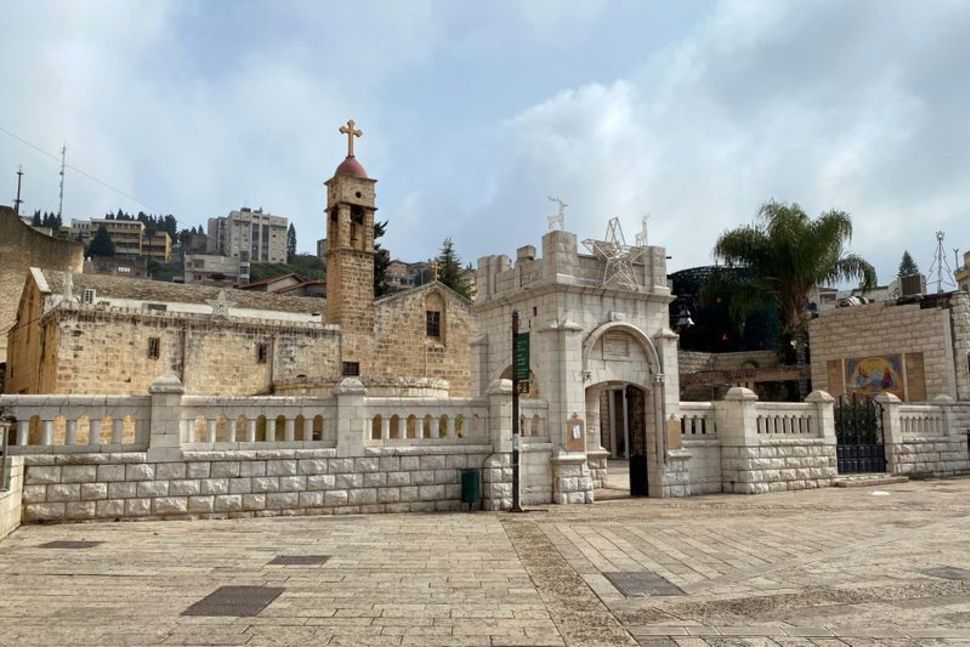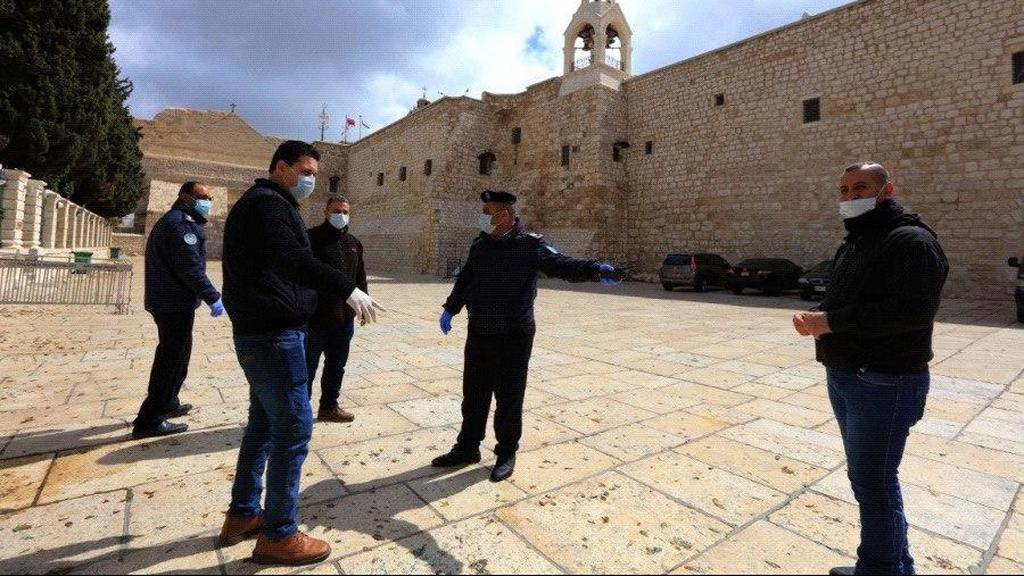Getting your Trinity Audio player ready...
Not a soul could be seen on Armageddon, where a near-complete coronavirus lockdown is keeping Christian pilgrims away from the Biblical site in northern Israel, half an hour's drive from Nazareth.
In normal times, tourists would be arriving daily to work their way up to the ruins on Armageddon's hazy summit, by tradition the End of Days battleground between good and evil in the final book of the New Testament.
2 View gallery


An empty plaza outside the Greek Orthodox Church of the Annunciation in Nazareth
(Photo: Reuters)
There is no sign of tourist or pilgrim coaches now at the ancient mound.
"A few brave people have come up here for a walk. I wouldn't recommend it," said a security guard, warning of infection. He was one of just a handful of workers at the site.
Near the modern town and prison of Megiddo, the earliest written reference to Armageddon seems to have been during the reign of the Egyptian Pharaoh Thutmose III, who defeated Syrian and Canaanite states there in 1468 BC.
It is one of many tourist sites which now lie deserted after authorities imposed a mandatory 14-day quarantine for all people entering the country, effectively shutting down the tourism industry.
Looking east across the Galilee, Nazareth's imposing Basilica of the Annunciation - built on a site that many Christians believe was the childhood home of Jesus's mother, Mary - is also bereft of all but the most hardy faithful.
Priests filling plastic bags with white candles and holy water on Sunday were asking worshippers to pray from home. The church itself was locked between services, and attendance was capped at 10 congregants.
"We were preparing for what should have been the heaviest Easter tourism season on record," said Sister Beatrice Bourrat, who works with Catholic pilgrims visiting Nazareth and other holy cities across Israel and the occupied West Bank.
"Guesthouses and hotels had hired seasonal workers. Now everybody is sitting at home. It's sad," she said.
Essential services
With over 300 Israeli confirmed cases of coronavirus and over 40 cases reported in the Palestinian Authority, religious authorities have closed down the Church of the Nativity in Bethlehem, Jesus's birthplace, which is also empty of visitors.
The steel doors of Nazareth's Old City market were mostly shut over the weekend on advice from the Health Ministry, apart from one shop: a coffee roastery which specializes in grinding beans for an ultra-strong Arabic-style brew.
"The government said essential services should remain open. Coffee is an essential service," said Raghed Fahoum, who manages Fahoum Coffee and Spices.
But with no tourists to serve, he's bracing for hardship.
"Something tells me we haven't hit the bottom yet," he said.
Even a brief drop in tourism ripples through the economy in tourism-dependent cities like Nazareth and Bethlehem, said Bassem Asfour, president of the Nazareth City Council.
"Usually, the church is overflowing with people on Sundays, locals and pilgrims. This is the fewest people I've ever seen here," said Asfour, outside the Greek Orthodox Church of the Annunciation. That church has also capped worshippers at 10.
The sandstone Orthodox shrine's underground spring, according to tradition, is where Mary was drawing water during the Annunciation - when the angel Gabriel told her she would give birth to Jesus.
One worshipper at the church, Rawan Jarjoura, said she was coming to pray "because we need God in times like this".
"I'll keep my distance from my neighbour, and try to stay close to God," she said.


